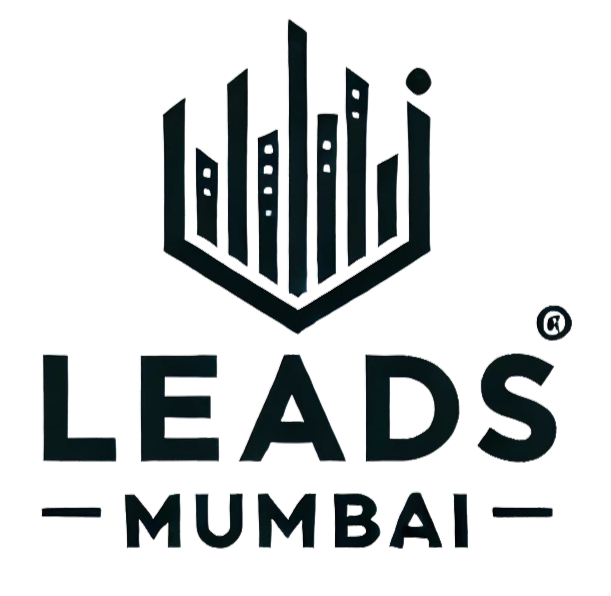In today’s digital-first world, having an online presence is not just a luxury—it’s a necessity. However, simply having a website is not enough to attract visitors and generate business. This is where Search Engine Optimization (SEO) comes into play. SEO Is Critical for optimizing your website to improve its visibility on search engine results pages (SERPs). By aligning your website’s structure, content, and strategy with search engine algorithms, SEO Is Critical to reaching the right audience, driving organic traffic, and achieving sustainable growth. From understanding the fundamentals to realizing its long-term benefits, SEO has become the backbone of online success for businesses of all sizes.
Understanding SEO: What It Is and How It Works

Search Engine Optimization (SEO) is a set of practices aimed at enhancing a website’s visibility on search engine results pages (SERPs). SEO Is Critical when potential customers search for products, services, or information online, as it ensures your website appears prominently, increasing the likelihood of clicks and conversions. To understand SEO fully, it’s essential to explore its key components—on-page SEO, off-page SEO, and technical SEO—and how these elements work together to help search engines rank websites effectively.
Key Components of SEO
1. On-Page SEO
On-page SEO refers to optimizing individual web pages to rank higher and earn more relevant traffic. SEO Is Critical for creating high-quality, keyword-rich content, structuring headlines and subheadings properly, and ensuring proper meta tags, such as meta titles and descriptions. Other crucial aspects include using descriptive alt text for images and internal linking to improve navigation and search engine indexing. On-page SEO focuses on providing value to both search engines and users by ensuring content is clear, concise, and well-structured.
2. Off-Page SEO
Off-page SEO includes activities performed outside of your website to influence your rankings. The most notable aspect is building backlinks, which are links from other reputable websites pointing to your site. SEO Is Critical in this process, as search engines view backlinks as votes of confidence, indicating your site’s authority and relevance. Social media marketing, influencer outreach, and guest blogging also contribute to off-page SEO, building brand awareness and credibility.
3. Technical SEO
Technical SEO focuses on the backend elements of a website, ensuring it is optimized for search engine crawlers. SEO Is Critical for improving website speed, mobile-friendliness, and secure connections through HTTPS. A well-structured XML sitemap and proper schema markup make it easier for search engines to understand your website’s content. SEO Is Critical to ensure that search engines can efficiently crawl and index your site, providing a solid foundation for other SEO strategies.
How Search Engines Use SEO to Rank Websites
Search engines like Google and Bing use algorithms to determine how websites should rank on their results pages. These algorithms assess various factors, including relevance, authority, and user experience. Here’s how SEO Is Critical in the process:
- Crawling and Indexing
Search engines use bots, or crawlers, to scan websites and gather information. SEO Is Critical for ensuring your site is easy to crawl by organizing content, using proper tags, and providing clear navigation. Without proper indexing, your site may not appear in search results. - Keyword Relevance
Keywords signal the topic of a webpage. SEO Is Critical in identifying and strategically placing relevant keywords throughout your content to match user search queries. Tools like Google Keyword Planner help identify terms users are searching for, enabling you to align your content with their needs. - Authority and Trustworthiness
Search engines rank websites higher when they are seen as authoritative and trustworthy. Backlinks, user reviews, and content quality play critical roles here. SEO Is Critical for establishing this authority by encouraging link-building and creating informative, reliable content.
The Role of Keywords, Content, and Backlinks
Keywords, content, and backlinks are the pillars of SEO. SEO Is Critical for ensuring that keywords act as the bridge between what users search for and the information your website provides. High-quality content enriched with relevant keywords keeps users engaged and satisfies their search intent. Backlinks from authoritative sources boost your website’s credibility, signaling to search engines that your content is valuable.
When these elements are optimized, they work in harmony to improve your website’s visibility, user engagement, and rankings. By mastering the fundamentals of SEO, businesses can achieve long-term online success and build a strong digital presence because SEO Is Critical to staying competitive in today’s market. Ultimately, SEO Is Critical for creating a sustainable and impactful online presence.
The Business Benefits of SEO: Why It Matters

In the digital age, where the internet is the go-to resource for information, products, and services, Search Engine Optimization (SEO) has emerged as a cornerstone of online success. For businesses looking to establish a strong online presence, SEO offers numerous benefits that go beyond just improving search rankings. It directly impacts visibility, drives organic traffic, and helps build credibility—all while being a cost-effective marketing strategy. Let’s dive deeper into why SEO matters for your business.
Increased Visibility and Organic Traffic for Your Website
One of the primary objectives of SEO is to improve your website’s visibility on search engine results pages (SERPs). When potential customers search for keywords related to your business, having your website appear on the first page dramatically increases the chances of clicks. Studies show that the top three results on Google receive the lion’s share of clicks, while those on subsequent pages see significantly lower engagement. SEO Is Critical in ensuring your business captures this valuable traffic.
SEO Is Critical because it ensures that your website ranks higher by optimizing elements like keywords, meta tags, and content structure. By targeting the right keywords and aligning them with user intent, SEO attracts a steady flow of organic traffic—visitors who discover your website naturally through search engines rather than paid ads. Unlike other forms of marketing, this traffic is not fleeting; it builds momentum over time, creating a sustainable source of potential customers for your business. This demonstrates why SEO Is Critical for building long-term digital growth.
Moreover, local SEO strategies help businesses attract nearby customers. For instance, optimizing for phrases like “best coffee shop in Mumbai” ensures that local users can easily find your business, leading to increased foot traffic and conversions. It’s clear that SEO Is Critical for local and broader marketing efforts alike.
Cost-Effectiveness Compared to Paid Marketing Methods
While paid marketing methods like Pay-Per-Click (PPC) advertising can yield quick results, they often come with high costs and temporary outcomes. SEO Is Critical for achieving a cost-effective and sustainable approach to online marketing. SEO, on the other hand, is a long-term investment that delivers enduring benefits. Once your website achieves a strong ranking, it can maintain that position with consistent optimization, reducing the need for expensive ad campaigns.
The cost-effectiveness of SEO lies in its ability to target users actively searching for your products or services. SEO Is Critical because it allows businesses to connect with individuals who already have a need or interest. Unlike traditional advertising, where businesses push their messages to a broad audience, SEO pulls in this targeted audience, increasing the likelihood of conversions and maximizing your return on investment (ROI).
Additionally, SEO Is Critical in supporting other marketing channels. For example, optimizing your website’s content makes it easier to integrate with email marketing and social media campaigns, amplifying their impact without additional costs. By focusing on this strategy, businesses can leverage multiple platforms effectively, reinforcing why SEO Is Critical in today’s competitive market.
Building Credibility and Trust Through Higher Search Rankings
In the eyes of users, a high-ranking website is often synonymous with trust and credibility. Search engines like Google prioritize websites with high-quality content, authoritative backlinks, and positive user experiences. When your website appears at the top of search results, it sends a message that your business is reliable and relevant.
SEO also helps establish credibility through content. Informative blog posts, detailed product descriptions, and engaging visuals create a positive impression of your brand. When users find value in your website, they are more likely to trust your business, revisit your site, and even recommend it to others.
Another aspect of trust-building is improving your website’s usability. SEO ensures that your site is easy to navigate, loads quickly, and is mobile-friendly. These factors not only enhance user satisfaction but also reduce bounce rates, signaling to search engines that your website is trustworthy and deserving of a higher ranking.


